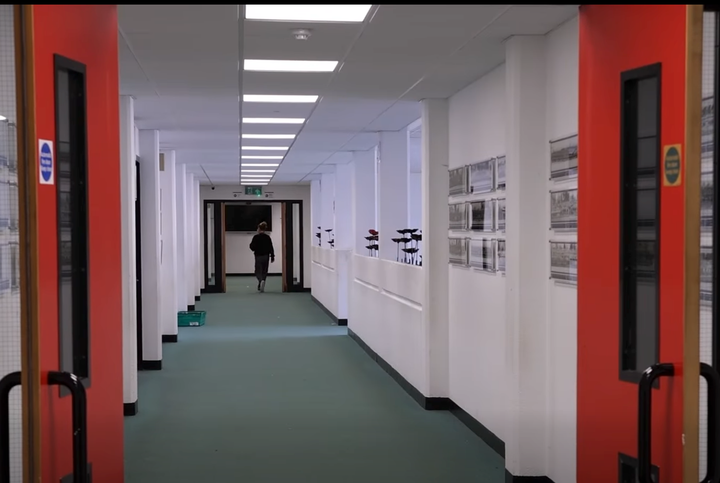Tax reform to be decided by June under latest timeline

- The Policy & Resources Committee has released a timeline for upcoming tax reforms.
- Two parallel workstreams have been established, one including a review of corporate tax options and the other making preparations for implementing the GST-plus package.
- The Tax Review Sub-Committee, led by Deputy Charles Parkinson, has begun its work.
- A debate on the inclusion of GST on food will occur in early 2026.
- Offshore wind financial opportunity will not be considered as part of the work.
The Policy & Resources Committee has published a timeline of activities aimed at determining the future of tax reforms.
The plan involves two concurrent workstreams: one reviewing corporate tax options and the GST-Plus package agreed last term, while the other prepares for the implementation of that package.
What is the GST-plus package and when could it happen?
The GST-plus package was agreed by the previous Assembly in November and the Policy & Resources Committee was directed to finalise proposals and submit legislation to the States to make it happen.
If the States make a final decision to introduce this when it is debated early next year, it will significantly change the way taxes are collected in Guernsey and is projected to deliver a net increase in tax revenue of around £50m.
There are four key areas:
Restructure of social security contributions:
- If the GST-plus package is introduced, most people who are employed or self-employed on low or middle incomes will pay less in contributions. This is because everyone will get an allowance on which they are not required to pay social security contributions, as is already the case for income tax. However, the rate paid on the remaining income will be higher.
- Contributions will also be aligned so that everyone will be subject to contributions on their worldwide income. Currently anyone who is employed or self-employed is required to pay contributions only on the income they receive from employment or self-employment. Whereas someone over pension age or not employed is required to pay contributions on all their income (including rental income or private pensions paid to those who retired early).
- Employers will pay a contribution rate of 8.5% for their employees' earnings up to the upper earnings limit (currently £188,604 a year) and then a reduced rate of 2.5% on their earnings between the upper earnings limit and £250,000.
Addition of a 15% lower income tax band on income up to approximately £32,400 and a slight increase in the personal allowance:
- If the GST-plus package is introduced, most people will pay less in income tax. This is because the amount someone can earn before they pay income tax will increase and then anything earned between the tax allowance and £32,400 will be taxed at 15%. Any income above £32,400 will be taxed at 20%.
Introduction of a GST:
- If the GST-plus package is introduced, everyone will pay tax on the things they buy. This will be collected by businesses and paid to the States (minus any GST the business has paid on things they have purchased). The GST is modelled very closely to the GST applied in Jersey.
- In November 2024, the States of Deliberation agreed to finalise proposals for GST to be charged at 5%, but this might need to be higher if the States decide to zero rate or exempt certain goods and services, like food. A policy letter on whether or not GST will be applied to food will be brought to the States in the first quarter of next year. This will inform the final decision being made by the States about whether to implement the GST-plus package or another option identified through the Tax Review Sub-committee.
Anticipatory changes to pensions and benefit:
- The States increase pensions and benefits by inflation each January to reflect the change in prices over the previous 12 months. However, because GST will increase prices (increasing RPIX by an estimated 3.2%) the intention is that pensions and other benefits will be increased to reflect this impact before the GST is applied, so people don't have to wait 12 months to be compensated for the increase in prices. The plans will also include a support scheme aimed at assisting low-income households who may not be claiming means-tested benefits.
If the States makes a final decision to implement the GST-plus package, the earliest it could be introduced would be Q1 2028. It was previously intended that this could be implemented by July 2027, however, this has changed to accommodate the 2025 General Election and the need to return to the States with a policy letter regarding whether or not GST should be applied to food.
At the beginning of this term, the Committee announced the creation of a Tax Review Sub-Committee to explore alternatives like corporate tax.
Deputy Charles Parkinson, who will head this Sub-Committee, emphasised the need for reform: “While there continues to be healthy discussion and debate around the right solution, what should be beyond discussion at this stage is that there is an urgent need for tax reform to safeguard public finances in the years ahead.”
His Sub-Committee’s terms of reference include looking at taxation of company profits and whether a system of territorial corporate tax should be implemented.
Examining personal income tax and capital taxes, including inheritance tax, has been ruled out.
The committee will also not look at transport taxes, which are being examined separately, or any income that may come from offshore wind due to the uncertainty and likely timescales involved in the project.
The GST-plus package, which includes a Goods and Services Tax along with reforms to income tax and social security, was agreed by the previous States in November. This reform package aims to address fiscal challenges while mitigating adverse impacts on lower-income segments of the community.
P&R’s new timeline indicates that there will be an early 2026 debate about whether to include GST on food.
The outcome of this debate is deemed essential for ensuring that the States have all necessary information to make a well-informed final decision on tax reforms.
Deputy Gavin St. Pier, Vice-President of the Policy & Resources Committee, acknowledged the urgency of the situation, stating: “The status quo is unsustainable.”
The P&R Committee is also committed to ensuring that preparations for implementing the GST-plus package continue uninterrupted.
If it goes ahead, it will come in six months later than originally intended, in the first quarter of 2028.
Alongside Deputy Parkinson and Deputy St. Pier, the Tax Review Sub-Committee will include three international experts in tax policy: Bill Dodwell, Professor Peter Harris, and Mike Williams, who will lend their expertise to ensure the integrity of the review process.
Mr Dodwell, was Head of Tax Policy at Deloitte between 2005 and 2018, and has been President of the Chartered Institute of Taxation and Tax Director at the Office for Tax Simplification
Professor Peter Harris is Professor of Tax Law at the University of Cambridge whose primary academic interest is in international, corporate and comparative tax law.
Mike Williams is a former Director of Business and International Tax at HM Treasury where he was responsible for all business taxes, including company tax and value added tax.
Further, Tony Mancini, former tax partner at KPMG who was Head of Tax for the Crown Dependencies until his recent retirement, will be an advisor to the Sub committee.




Comments ()